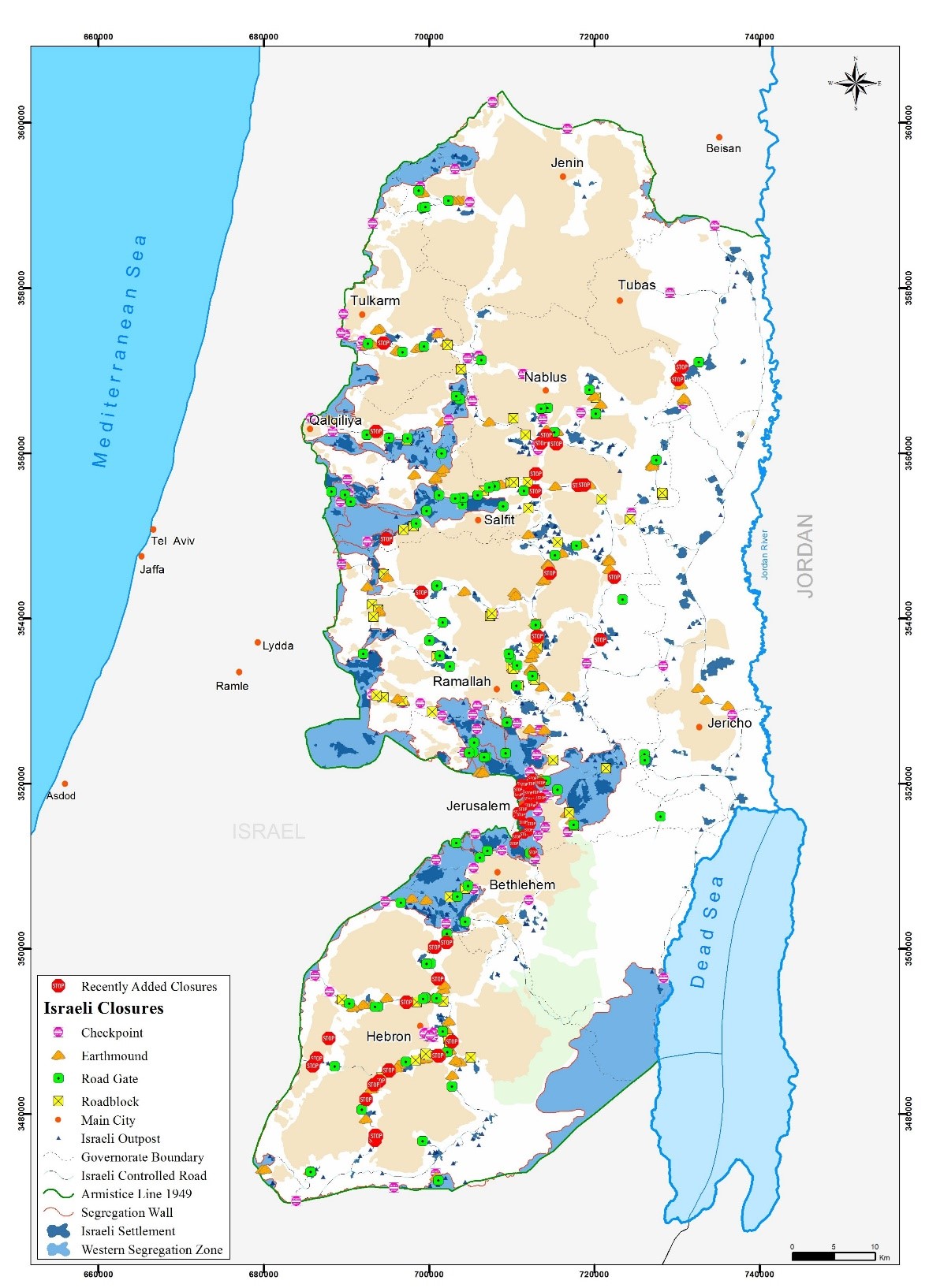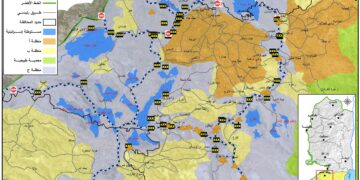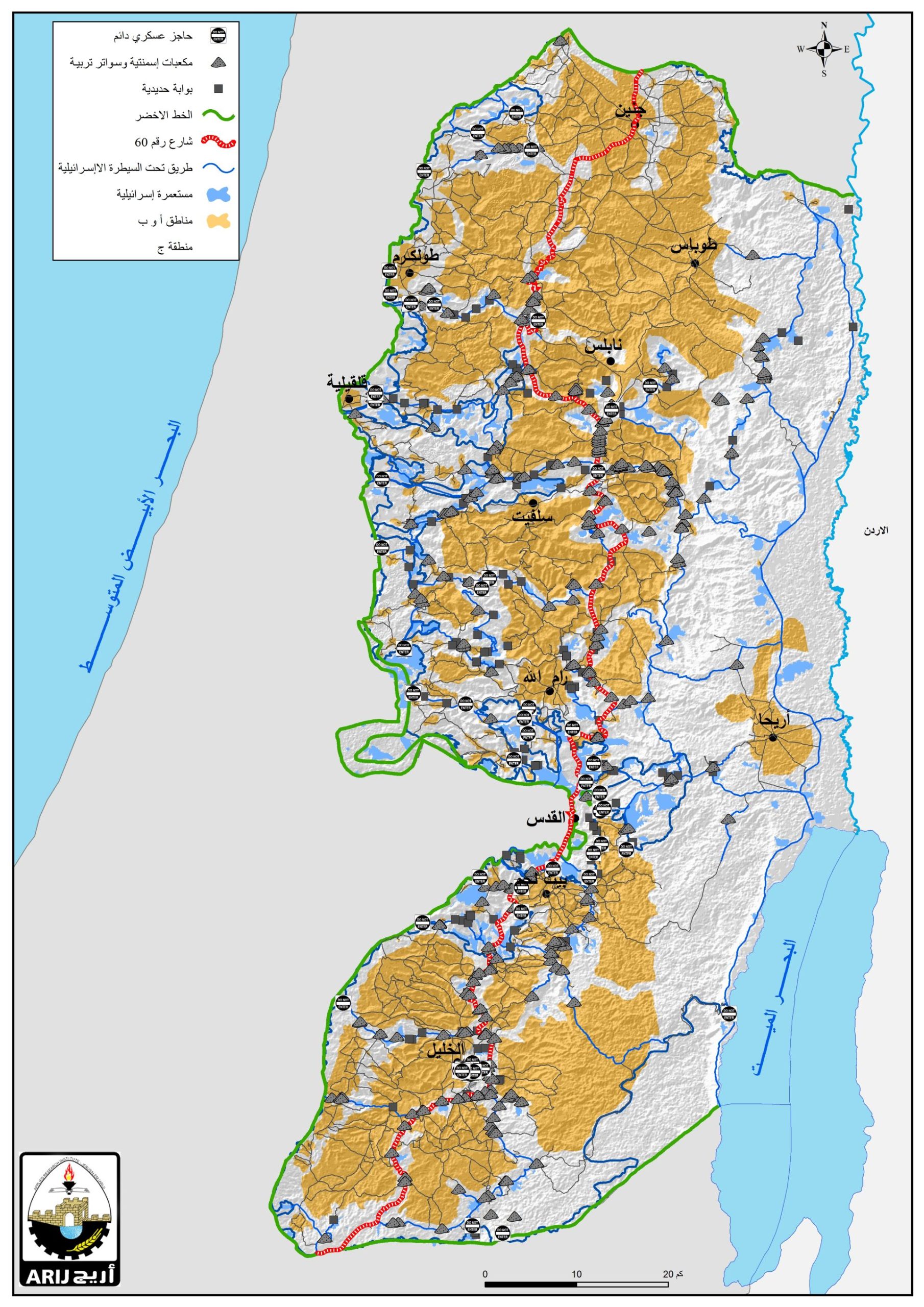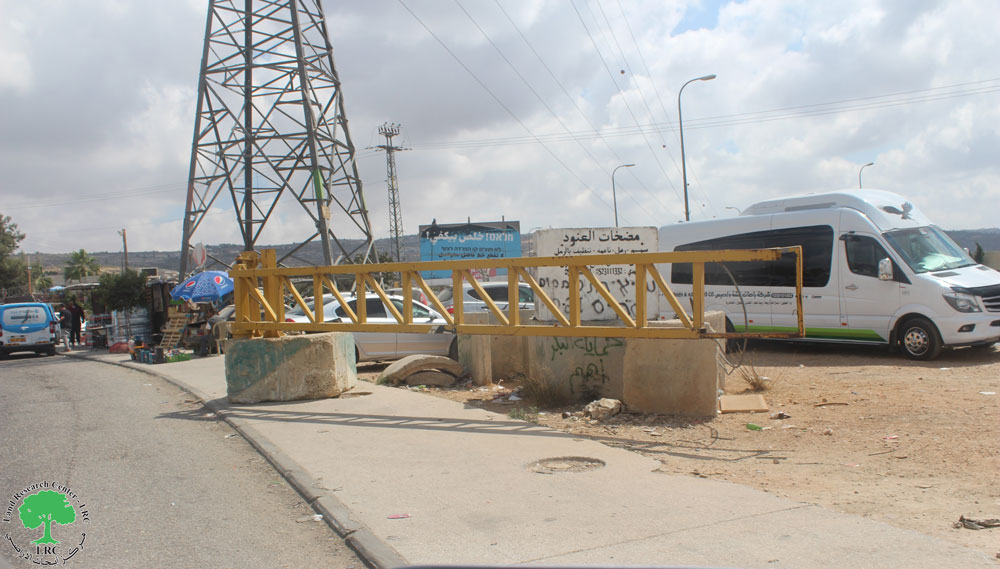In the wake of the overwhelming Israeli settlers and the Israeli occupation government increasing their wave of attacks and assaults on the Palestinian people (more than 700 since the beginning of the year 2023) and the latter practicing their right to self-defense. The Israeli far right nationalist security minister “itamar ben gavir” is calling bluntly for institutionalizing Jewish supremacy. “Ben Gvir” is crying for apartheid system in the occupied Palestinian territory (misleadingly referred to by ben gavir as Judea & Samaria) when he openly said that his right and that of his family and the Israeli illegal settlers to move safely at well trumps the right of the Palestinians to free movement.
“Ben Gvir” insolently claims on an Israeli channel “My right, the right of my wife and my children to move around Judea and Samaria is more important than freedom of movement for the Arabs,” conveniently dismissing the atrocities and horrors committed by the settlers under his watch and before and under the protection of the Israeli Army; from the burning of the Dawabsheh family in Duma to stabbing Qusai Ma’attan in Burqa.
“Ben Gvir” who was convicted in the past for supporting Jewish terror organization against Palestinians has caused a major squeeze and embarrassment for the government who failed to comment or refute “Ben Gvir’s” disgraceful claims, which says about the current government formation; as to say, “the apple doesn’t fall far from the tree”.
Netanyahu foolishly tries to fine-tune the situation,
The Israeli PM attempted to address the “Ben Gvir” fiasco in a public relation commentary saying that Israel allows “maximum freedom of movement” in the West Bank for both the Israelis and Palestinians. Netanyahu, on his turn, conveniently escapes the reality on the ground that is tangibly felt by the Palestinians and materialized in the 645 various obstacles entrenched in the occupied Palestinian territory and deny the Palestinian what he claim “maximum freedom of movement”.
 Various Israeli obstacles (including checkpoints) in occupied West Bank
Various Israeli obstacles (including checkpoints) in occupied West Bank
The reality that the Palestinian are govern by an Israeli military permit regime,
An institutionalized permit regime is operated by the Israeli Civil Administration, showed that in order for Palestinians to access certain areas; mainly the area beyond the segregation wall; known as western segregation zone (WSZ), which is the area isolated between the segregation wall and the 1949 Armistice line (the green line) and beyond it as well, they are required by military law to be in passion of a valid permit issued from the Israeli Civil Administration to cross a checkpoint.
The total land area isolated in the WSZ is 705 km², representing some 12.5% of the West Bank area, of 47% is agricultural land. According to A Civil Administration document obtained by the Israeli newspaper Haaretz in 2011, “There are 101 types of permits govern the Palestinian local affairs.”, hence:
- Palestinians cannot access East Jerusalem without permits and constraint, even for healthcare,
- 20% of Hebron City; the proclaimed “H2” area is restricted to Palestinians movement by Israeli regulations and 80 various obstacles,
- Some 40% of the West Bank total area are off limit for the Palestinians under military orders pretext of “closed military areas”, “fire training zones”, “mind areas”, “settlement area”, “military bases”,
- Inaccessibility between Gaza and the West Bank without a permit, which is only obtainable under extremely difficult circumstances,
- The Israeli segregation wall isolates more than 700 square km of the West Bank area; where Palestinian farmers and landowners has excoriating time getting a permit to access their land,
Environmental impact of the Israeli permit regime and checkpoints,
The study conduct by ARIJ in 2019 “Assessing the impacts of Israeli movement restrictions on the mobility of people and goods in the West Bank” highlights the Israeli matrix of control applied in the oPt and its economic and environmental impact. It also concluded that there were about 15 major Israeli checkpoints controlling the movement of Palestinian in the West Bank, and 11 major Israeli military checkpoints controlling Palestinian access to East Jerusalem and Israel.
Employing 70 vehicle with tracking devices for a period of 6 months (January – July 2018), more than 18 million records were registered and stored. The records showed total annual delays at checkpoints and ultimately Palestinian labor force time loss of almost 60 million hours, costing Palestinians approximately $274 million USD.
The environmental costs was no less horrifying when calculating along with the congestion and the average annual costs of delays to the Palestinian labor force, the annual emissions from additional fuel consumption were calculated at some 81 million liters of fuel, at a cost of nearly $135 million USD, producing additional 196,000 tons of CO2 emissions.
Israel, Netanyahu, and “Ben Gvir”, are anything but oblivious of what is happing on the ground; they stand in blunt violation of the international law and of the article that guarantees the indigenous under occupation right to movement; yet they choose to overlook them; which if anything reflect their vindictive nature against Palestinian.
- **International Covenant on Civil and Political Rights (ICCPR):** The ICCPR, a key international human rights treaty, outlines the right to freedom of movement in Article 12. It states that everyone lawfully within the territory of a state shall have the right to liberty of movement and freedom to choose his residence. Any restrictions on this right must be necessary, proportionate, and in accordance with the law.
- **The Universal Declaration of Human Rights (UDHR):** Article 13 of the UDHR states that everyone has the right to freedom of movement and residence within the borders of each state. This right can only be subject to restrictions necessary to protect national security, public order, health, or morals, and the rights and freedoms of others.
- **UN Human Rights Council Resolutions: ** The UN Human Rights Council has passed resolutions addressing human rights violations in the Israeli-occupied territories, including restrictions on freedom of movement. These resolutions often call for an end to practices that hinder the movement of Palestinians and for compliance with international humanitarian law.
- **Advisory Opinion on the Legal Consequences of the Construction of a Wall in the Occupied Palestinian Territory: ** In 2004, the International Court of Justice (ICJ) issued an advisory opinion on the Israeli West Bank barrier (wall). The ICJ concluded that the construction of the barrier and associated restrictions on movement violate international law, including the right to freedom of movement.
- **Reports by Human Rights Organizations: ** Organizations like Amnesty International and Human Rights Watch have published numerous reports documenting violations of freedom of movement in the Israeli-Palestinian context. These reports often cite specific incidents and examples of restrictions imposed on Palestinians.
- **Geneva Conventions: ** The Fourth Geneva Convention, which governs the protection of civilians in times of conflict, prohibits actions that restrict the movement of civilians in occupied territories. It emphasizes that the occupying power has a duty to ensure the well-being of the occupied population, including their freedom of movement
Prepared by:
The Applied Research Institute – Jerusalem













